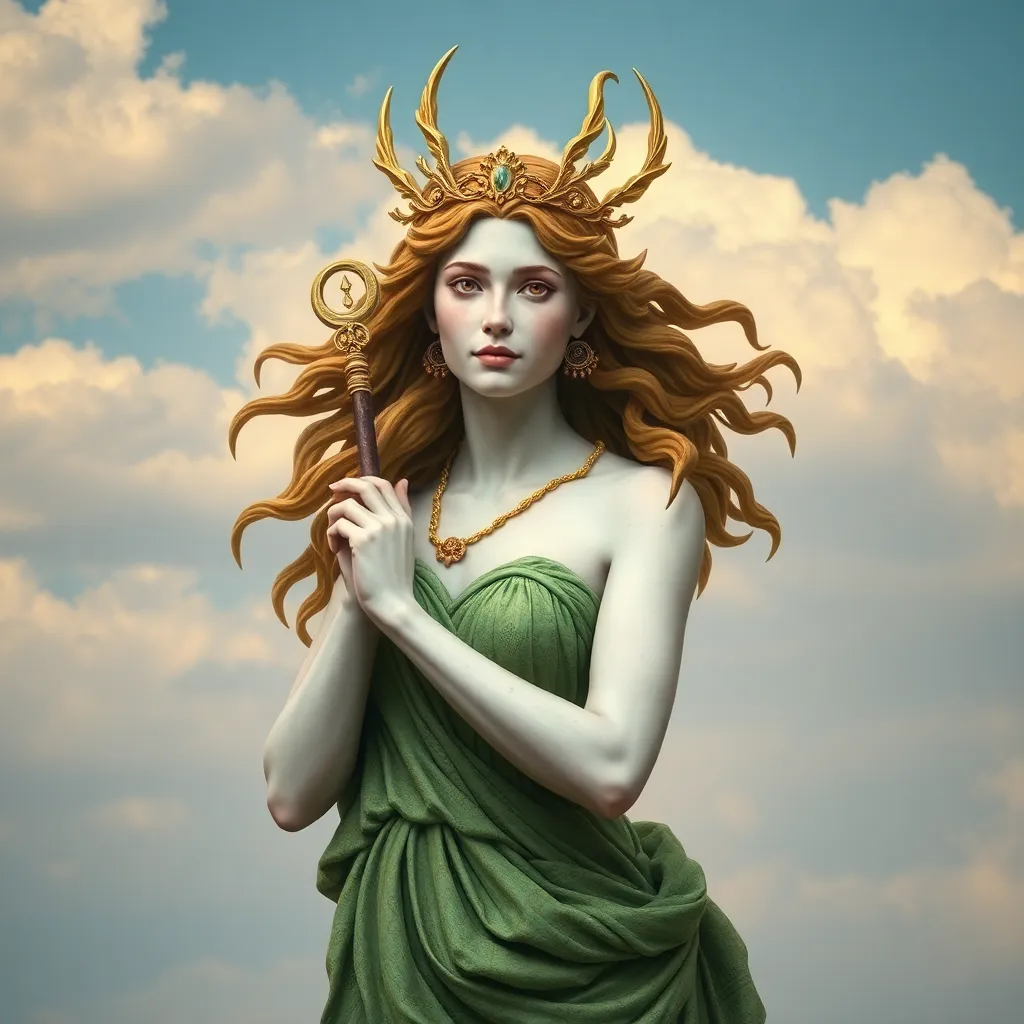Artemis and the Role of Nature in Greek Mythology
I. Introduction
Artemis, one of the most revered deities in Greek mythology, is known as the goddess of the hunt, wilderness, and childbirth. She embodies the spirit of nature and the delicate balance between humanity and the environment. In Greek mythology, nature holds immense significance, serving as both a backdrop for divine narratives and a living entity that interacts with the gods and mortals alike. This article delves into the multifaceted role of Artemis and her deep connections to the natural world, exploring her attributes, myths, and the legacy she leaves on contemporary nature conservation efforts.
II. The Birth and Attributes of Artemis
Artemis was born on the island of Delos, a sacred place in Greek mythology, to the Titaness Leto and Zeus, the king of the gods. Her twin brother is Apollo, the god of the sun and music. From her birth, Artemis was destined to be a powerful figure, marked by her independence and strength.
Her attributes are rich with symbolism:
- Bow and Arrows: Representing her prowess as a huntress, the bow and arrows are tools of both sustenance and protection.
- Deer: Often associated with her, deer symbolize grace, beauty, and the untamed spirit of the wilderness.
- Moon: Sometimes connected to lunar associations, Artemis embodies the mysterious and nurturing aspects of nature.
Artemis embodies duality: she is both a fierce huntress and a protector of wildlife, demonstrating her deep connection to the cycles of nature and the importance of maintaining harmony within it.
III. Artemis as the Goddess of the Hunt
The act of hunting was an integral part of ancient Greek culture, reflecting not only survival but also a deeper connection to the land. Artemis, as the goddess of the hunt, played a crucial role in shaping attitudes toward hunting and nature. Her presence encouraged respect for the environment and wildlife, emphasizing the importance of balance.
Through her myths and worship, Artemis promoted the idea that:
- Hunting should be done sustainably.
- Nature should be revered and preserved, not exploited.
- Humans have a responsibility to protect the habitats of animals.
This reverence for nature is woven into many aspects of Greek life, showcasing Artemis’ influence in promoting a harmonious relationship between humanity and the natural world.
IV. Artemis and Fertility
Beyond her role as the goddess of the hunt, Artemis is also deeply connected to fertility and childbirth. She is often depicted as a protector of women, especially during childbirth, which highlights her nurturing side.
The cycles of nature mirror the cycles of fertility, and Artemis embodies this connection:
- The changing seasons reflect the cycles of life and death.
- Her guardianship extends to young animals, symbolizing the continuity of life.
- She represents the protective aspects of nature, ensuring that life thrives.
Through her role as a guardian of both women and wildlife, Artemis underscores the interconnectedness of all living beings and the nurturing aspect of nature.
V. Sacred Groves and Natural Sanctuaries
Sacred sites dedicated to Artemis played a vital role in ancient Greek religion. These places were often located in natural landscapes, such as forests, mountains, and groves, emphasizing the importance of nature in worship.
The role of natural landscapes in religious practices included:
- Spaces for offerings and rituals to honor Artemis.
- Preservation of natural habitats through religious observance.
- Community gatherings to celebrate the bounty of nature.
These sacred groves served not only as places of worship but also as early conservation efforts, ensuring that the natural world was respected and preserved.
VI. Myths Involving Artemis and Nature
Numerous myths illustrate Artemis’ relationship with nature, showcasing her interactions with both divine beings and mortals. One of the most famous myths involves the hunter Actaeon, who, upon accidentally seeing Artemis bathing, is turned into a stag and hunted down by his own dogs. This story serves as a cautionary tale about the respect that must be afforded to nature and its deities.
Other notable myths include:
- The story of Niobe, who boasted about her children and faced Artemis’ wrath when her children were killed.
- The tale of Orion, a hunter whom Artemis killed out of jealousy, reflecting her fierce protective nature.
- The myth of the Calydonian Boar, where Artemis sends a monstrous boar to ravage the land when she is offended.
These myths convey essential lessons about humility, respect for nature, and the consequences of hubris.
VII. The Legacy of Artemis in Modern Nature Conservation
Artemis’ influence extends beyond ancient times into contemporary environmental movements. Her image and attributes serve as symbols of nature conservation and the importance of protecting wildlife.
Some ways Artemis is relevant today include:
- Her representation in art and literature as a figure of nature’s guardianship.
- Modern environmental organizations often invoke her name to emphasize the need for wildlife protection.
- Her principles of balance and respect for nature resonate with current sustainability efforts.
Artemis remains a powerful symbol of the ongoing struggle for environmental awareness and conservation in today’s society.
VIII. Conclusion
In conclusion, Artemis’ significance in relation to nature is profound and multi-dimensional. As a goddess of the hunt, protector of wildlife, and guardian of fertility, she embodies the essence of the natural world. Her myths and attributes reflect the ancient Greeks’ understanding of the importance of balance between humanity and nature.
The enduring impact of Greek mythology, particularly through figures like Artemis, continues to influence modern environmental awareness and conservation efforts. It prompts us to reflect on our relationship with the natural world and the necessity of maintaining harmony between human existence and the ecosystems that sustain us.
As we navigate the complexities of contemporary life, the principles represented by Artemis remind us of the beauty, fragility, and value of the natural world, urging us to protect and honor it for generations to come.




